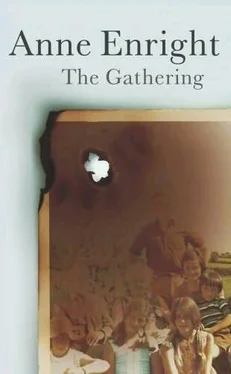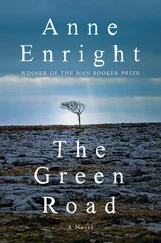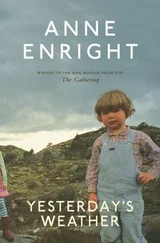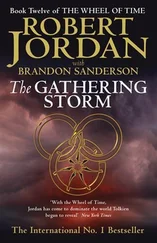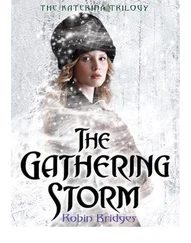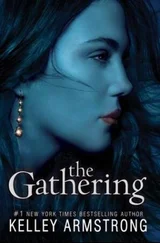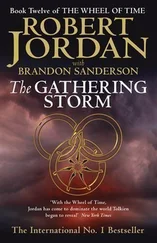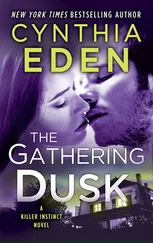Jesus. Where did that come from? I have to calm down.
‘This is not about you, all right? People die, Rebecca.’
‘I want to go home!’
‘And I want you to be a little bit grown up here. All right?’
And so it goes.
‘I didn’t even like him,’ she says, in a final, terrible whimper, and this makes me laugh so much she stops crying to look up at me.
‘Neither did I, sweetheart. Neither did I.’
Emily has come out to look for me, followed by Tom. So we stand up and dust ourselves down and turn around, one more time. I have my children about me and my husband at my side, and I walk back into yet another family gathering; every single one of them involving ham sandwiches with the crusts cut off, and butter, and supermarket coleslaw, and cheese-and-onion crisps for the side of your plate. There are cocktail sausages and squares of quiche, and fruit salad for Mossie, who complains about trans-fats. There are Ritz crackers with salmon pâté and a single prawn on top, others with a sprig of parsley over a smear of cream cheese. There is houmous for Kitty or Jem, whichever one of them is vegetarian this week, in a trio of dips with guacamole and taramasalata. There is my smoked salmon, and Bea’s lasagne, and fantastic packet jelly wobbling in little glass bowls, made by my mother with quiet deliberation and left to set the night before.
There is no wine.
No, I tell a lie. This time, for the first time-perhaps in honour of Liam’s prodigious drinking-there are two bottles on the table; one red, one white. Everyone knows they are there, and no one, but no one, is going to drink them. Mossie tries to pour a glass for Mrs Cluny, who nearly beats him away with her handbag. ‘No no, I couldn’t,’ she says. ‘No, absolutely not.’
It is great to be nearly forty, I think, and lashing into the fizzy orange.
Jem goes in to rescue some chairs from the room next door, and Bea passes around the plates, and we get the show on the road. For a while I try to keep the kids in check, and then I don’t bother. I lean against the wall and watch my family eat.
When we were young, Mossie used to insist on silent chewing. He didn’t mind sitting with us, he said, and we could talk as much as we liked, but he would not abide the noise of the food being mashed up in our mouths, and any slurps, even the slightest squelch, would get you a thump across the side of the head. He kept his eyes on the table for the duration, but he moved fast and blind. I don’t know why we put up with it-it must have been fun, too-but, watching my family scoffing the funeral meats, I do sort of see where he was coming from.
Ernest, the celibate, is particularly terrible to watch. Even my mother eats with a sudden greed, as though remembering how to do it. Some surge of recognition sends her scampering from one Ritz cracker to the next, she gets in people’s way, and they are, for a tiny moment, aggrieved. The neighbours take a little on their plates and set them down, and then, after a while, they forget themselves so much as to scoff the lot. A man I slowly recognise as my father’s brother is helping himself with thick fingers. He works pragmatically fast, amused by the array of little treats, concerned to get a decent amount of food into himself before night.
Daddy came from County Mayo-which is to say he left County Mayo when he was seventeen years old. Liam was sentimental about the West of Ireland, but I don’t think Daddy was, and I am not. But I am sentimental about my Uncle Val-or so I find. I watch him, thinking that, if I stare hard enough, my childhood will rise to meet him. Also, I want to see what kind of a man he is, now that I have met many other men, out in the big world.
Val is a bachelor farmer in his seventies, so he should, by rights, be half-mad. But he looks chipper enough. Also clever. He does one thing at a time, that is the notable thing about him. He wipes his fingers on a paper napkin and looks for a place to set it down, and when he finds none, he scrunches the tissue up and tucks it firmly under the rim of his empty plate. Then he looks at one or other of us as if guessing at our lives: the way they have gone and the way they will end up. Uncle Val loved endings. He was especially fond of suicides. He used to talk us through the neighbours’ houses, and tell us who shot himself and who used the rope. He told Liam a story about a local man who, when his wife refused to have sex with him, upped and got the kitchen knife and castrated himself in front of her.
‘The whole shooting gallery,’ he said. ‘The whole shooting works.’
‘Uncle Val,’ I say, shaking his hand, thinking I could have a panic attack, just by catching the smell of his suit.
‘Veronica, is it? I’m very sorry. He was a great lad. I think he was my favourite.’
‘Yes,’ I say.
‘He was very good company, always.’
‘Yes.’
I have loved my Uncle Val, I realise, since I was six years old.
‘He always enjoyed his visits to you,’ I say. ‘He relished them.’
‘Ah well,’ says Val. ‘We did our best.’
And it occurs to me that I wasn’t the only one who tried to save Liam-this man tried too, and this man, stuck out on his farm in Maherbeg, will always feel guilty that he did not succeed. The word ‘suicide’ is in the air for the first time-the way we all failed. So, thanks Liam. Thanks a bunch.
Ita reaches behind her and takes a glass of water which she has set in the sink. It has been teasing me all evening-why is she keeping it there? Then I realise it is not water, but gin. Amazing. She looks the same as she did when I arrived, though her face is a little more swollen and set. There is also the fact of her nose, which is without doubt a different, and more American, shape. Ita is looking at us all with undisguised rage. Maybe it is because we are so ugly. Though I can hardly complain-the way I react to the sight of the Hegarty mouths moving around food.
Meanwhile, Tom is back talking to Mossie again. ‘The only sane one, actually, in the whole family,’ as he says to me, annually, sometime around Christmas. And it is true, as I look at him, my brother does seem very normal, he has a nice job and a nice wife and he sends around a nice newsletter telling us how his little family is doing. ‘A big welcome for baby Darragh!!’ Truth be told Mossie has done nothing psychotic for twenty years. But still ha ha says Liam next door, as Tom my professional husband engages Mossie my professional brother in some political talk about the way the country is on the up and up. Ha bloody ha , says the corpse next door.
I want to get drunk. Suddenly. This is a calamitous thing to want, but it can not be denied. I want rid of my children and my husband so I can get properly rat-arsed for once, because God knows I have never been properly rat-arsed before. And there is Kitty rolling her eyes at me, from the other side of the room. Ita! I drift by the sink (because alcoholics are always useful when you want a good time).
‘We need a bottle of something. Is there a bottle, for after?’
And, through gritted teeth, Ita says, ‘I’ll have a look.’
There is a shift in the room. It is time to move, or go. I must talk to Midge’s girls, quickly, before they leave with children and babies and toddlers in tow. My niece Ciara is five months’ pregnant, and her face is violently mottled in the heat.
I dab at her forearm and she grazes my wrist, because pregnant women must touch and be touched, and my look, I know, is quite ardent as I say, ‘Are you sleeping? Did you get the new bed?’ Ciara strokes her stomach, then reaches towards me in another flutter of hands.
‘Jesus, life on a futon,’ she says.
‘That man of yours,’ I say. ‘He should be shot.’
Читать дальше
